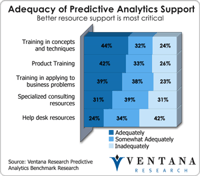
The developed world has an embarrassment of riches when it comes to information technology. Individuals walk around with far more computing power and data storage in their pockets than was required to send men to the moon. People routinely hold on their laps what would have been considered a supercomputer a generation ago. There is a wealth of information available on the Web. And the costs of these information assets are a tiny fraction of what they were decades ago. Consumer products have...
Topics: Big Data, Mobile, Predictive Analytics, Social Media, Customer Experience, Operational Performance Management (OPM), Performance, Analytics, Business Analytics, Business Collaboration, IBM, Business Performance Management (BPM), Customer Performance Management (CPM), finance, Financial Performance Management (FPM), Sales Performance Management, Sales Performance Management (SPM), Social, Financial Performance Management, SPSS











